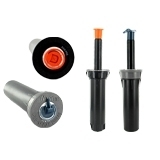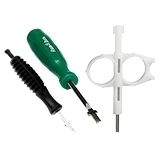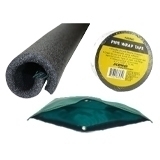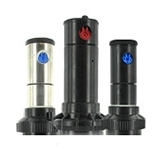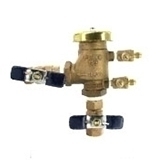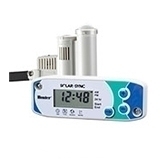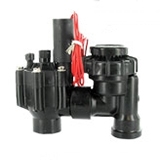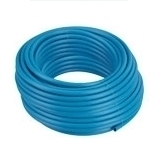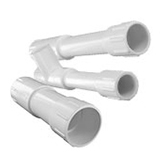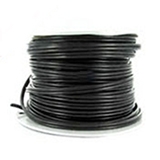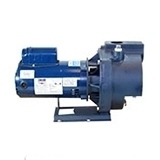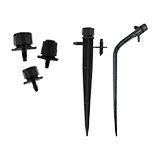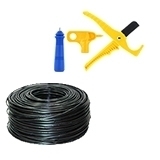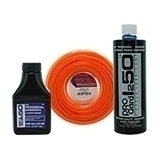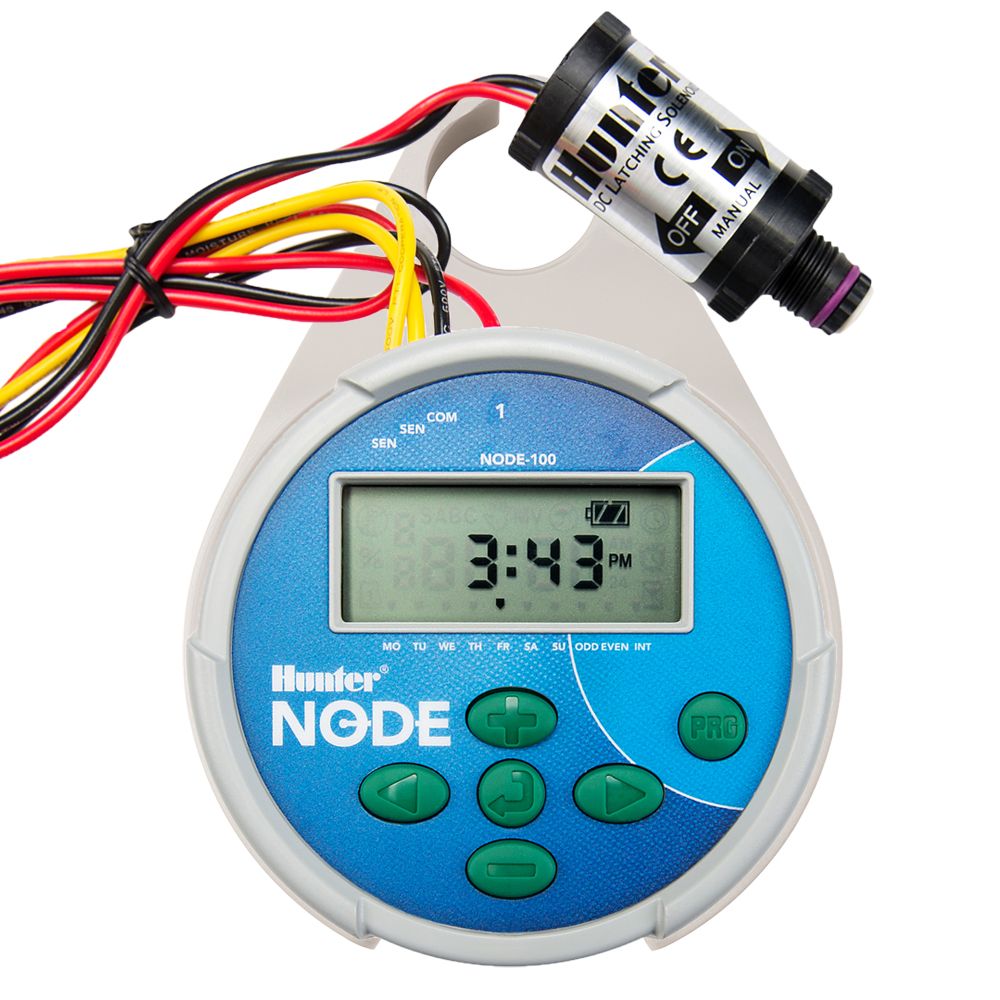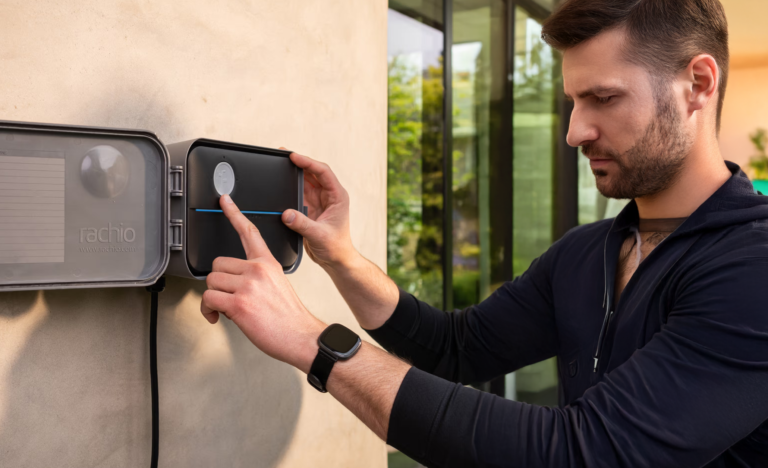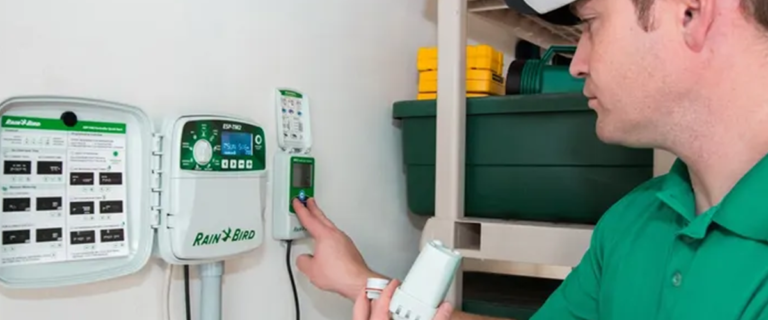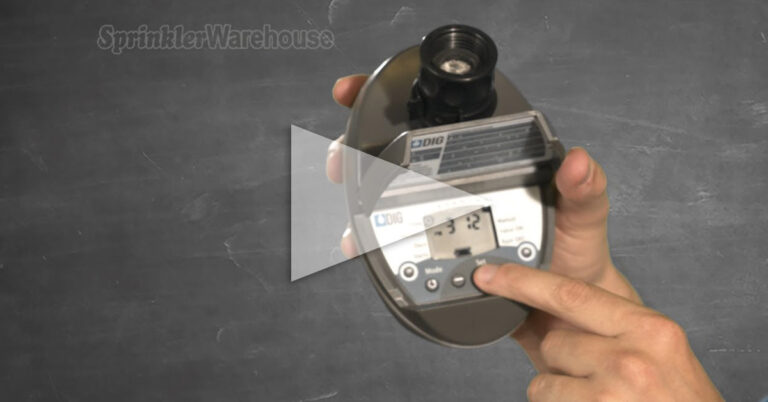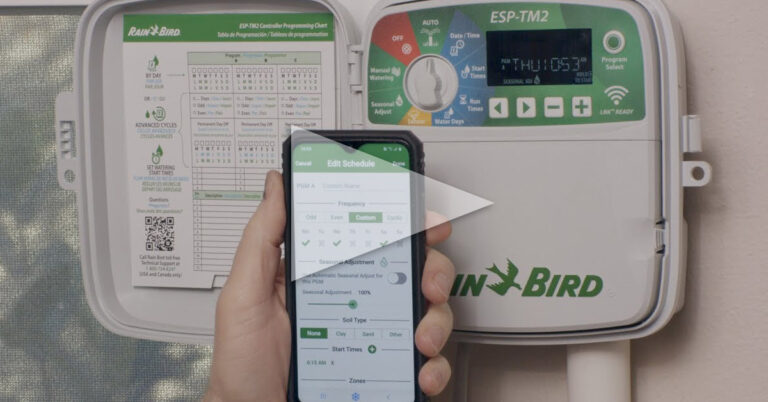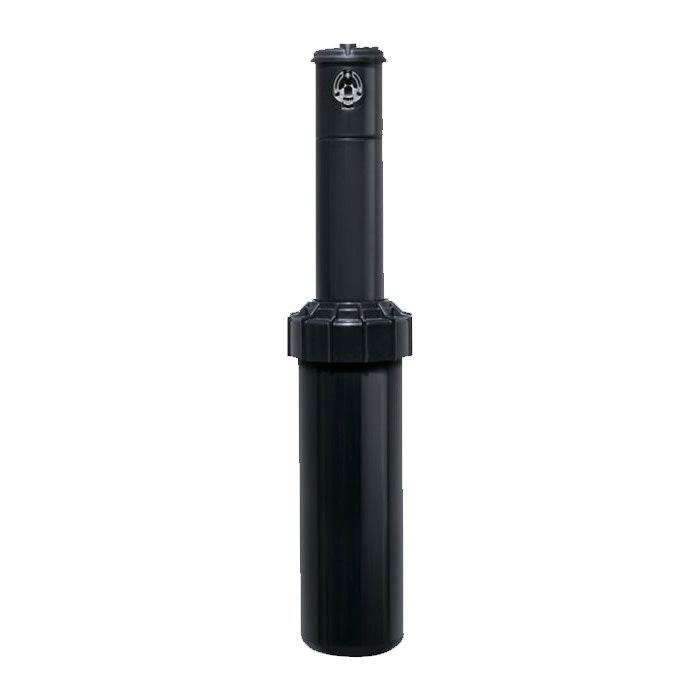To keep your lawn or garden lush and healthy, you need to water it effectively. This is where sprinkler controller systems come in handy.
These days, you’ve got plenty of options when it comes to sprinkler controllers, so you can find one that fits exactly what you’re looking for. Whether you’re on the lookout for fancy features or want to stick with something simple, you’ll find a control system that fits the bill.
In this guide, we will dive into the different types of sprinkler controller systems available, including standard controllers, smart sprinkler controllers, solar sprinkler systems, and hose timers.
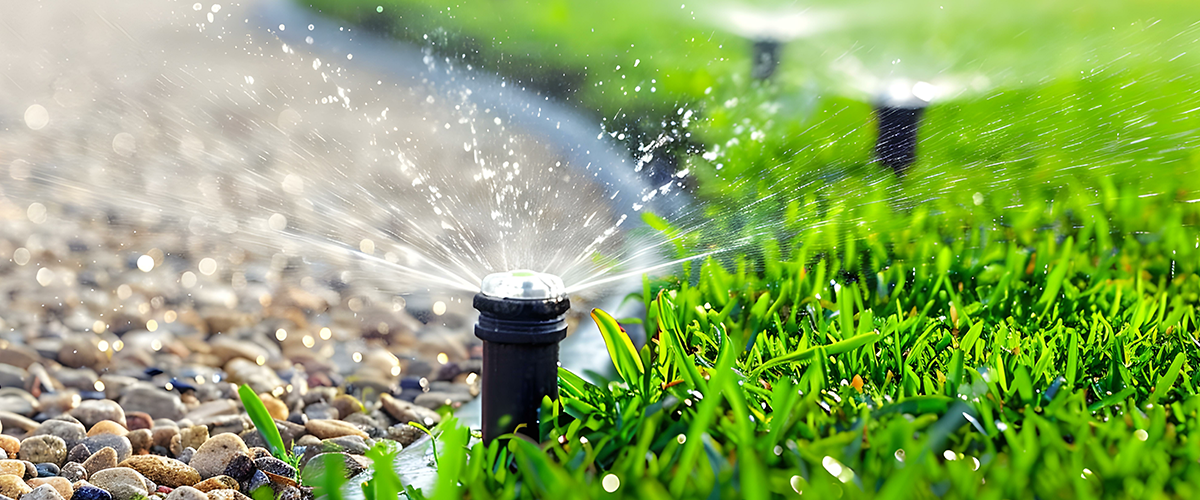
Understanding Sprinkler Control Systems
Before we get into the specific types of sprinkler controllers, you should first understand the role these systems play in keeping your green spaces happy and healthy.
Sprinkler controllers, also known as timers, are devices that automate the watering schedule of your irrigation system. By setting specific times and durations for watering, these controllers make sure that your lawn or garden receives the attention it needs.
- Conserving Water—and Money: Automated sprinkler systems can be programmed to water your lawn or garden at the best times. Not only can you conserve water but you can save yourself money in the long run.by cutting down on water loss, reducing runoff, and, subsequently, lowering your water bill.
- Consistency: Sticking to a schedule ensures your lawn consistently receives the right amount of water on the regular.
- Convenience: By automating your system, you can ditch the need for manual watering, which saves you a good chunk of time and effort.
- Customization: Automation lets you tailor watering schedules to fit the specific needs of different areas in your lawn or garden.
Types of Sprinkler Control Systems
Sprinkler control systems come in various types, each one offering different features for every situation. Here’s an overview of the types of sprinkler control systems available.
Smart Sprinkler Controllers
WiFi-enabled smart sprinkler controllers are a useful innovation in sprinkler technology. These devices connect to your home WiFi network, allowing you to control your sprinkler system from anywhere using a smartphone or tablet.
Benefits of Smart Sprinkler Controllers
- Remote Access: Control your sprinkler system from anywhere, anytime.
- Weather-Based Adjustments: Some smart sprinkler controllers can adjust watering schedules based on real-time weather data, guaranteeing perfect water levels.
- Integration with Smart Home Systems: Most smart sprinkler controllers can be integrated with other smart home devices for a smooth watering experience.
- Detailed Reporting: Many smart sprinkler controllers provide insights and reports on water usage and system performance.
Popular Models of WiFi and Smart Controllers
- Rachio 3 Smart Sprinkler Controller: The Rachio 3 Smart Sprinkler Controller is known for being easy to use, as well as for its seamless integration with numerous smart home systems.
- Rain Bird TM2-6: The Rain Bird TM2-6 offers reliable performance and intuitive controls, perfect for the gardener who wants to make sure their green spaces are as vibrant as can be.
Standard Analog Controllers
Standard analog controllers are traditional sprinkler controllers that operate using a manual interface. These systems are reliable and straightforward, making them a popular choice for many homeowners.
Benefits of Standard Analog Controllers
- Ease of Use: Simple dial and button controls make standard sprinkler controllers easy to program.
- Reliability: Standard sprinkler controllers have been used for decades. They are a proven technology with a long track record of dependable performance.
- Cost-Effective: Standard sprinkler controllers are generally more affordable than smart controllers.
Popular Models of Standard Analog Controllers
- Hunter Pro-HC12 Controller: The Hunter Pro-HC12 Controller is known for being long-lasting and easy to use.
Solar Sprinkler Systems
Solar sprinkler systems are an eco-friendly option that use solar energy to power your irrigation system. Solar sprinkler system controllers are ideal for areas with a ton of sunlight and for those extra-green gardeners looking to reduce their carbon footprint.
Benefits of Smart Solar Sprinkler Systems
- Eco-Friendly: Smart solar sprinkler systems rely on renewable energy, reducing reliance on your home’s electricity.
- Cost Savings: Smart sprinkler systems get rid of the need for having external power sources, cutting back on your home’s energy costs.
- Easy Installation: Smart sprinkler systems are typically straightforward to install without the need for extensive wiring.
Popular Models of Solar Sprinkler Systems
- DIG LEIT Solar Powered Controller with 1-inch Valve: The DIG LEIT Solar Powered Controller with 1-inch Valve features solar recharging and easy installation, perfect for those gardeners who want to fully harness the energy of the sunlight!
Hose Timers
Hose Timers are a simple and cost-effective solution for smaller gardens or specific areas that need separate watering. These nifty devices attach directly to your garden hose and automate the watering process.
Benefits of Hose Timers
- Simplicity: Hose timers are easy to install and use, requiring minimal setup.
- Affordability: Hose timers are generally less expensive than other types of sprinkler controllers.
- Flexibility: Hose timers are ideal for smaller spaces or dividing up how you want to water certain areas.
Popular Models of Hose Timers
- DIG Digital Hose End Timer: The DIG Digital Hose End Timer is straightforward to use and makes scheduling easy, perfect for people who want a painless solution for automating their sprinkler systems in their lawn or garden.
Choosing the Right Sprinkler Control System
Selecting the appropriate sprinkler control system depends on several factors, including the size of your lawn or garden, your budget, and your specific watering needs. Here are five considerations to help you make the best choice.
1. Identify Your Lawn or Garden Size
Understanding the size of your lawn or garden is crucial for selecting the right sprinkler control system that can efficiently meet your sprinkler needs.
- Large Areas: Smart sprinkler controllers or standard analog controllers are ideal for larger lawns or gardens due to their advanced scheduling capabilities.
- Small Areas: Hose timers or standard analog controllers can be sufficient for smaller spaces.
2. Determine Your Budget
Your budget will play a significant role in choosing the sprinkler control system that best fits your financial constraints while delivering on functionality.
- High Budget: Smart sprinkler controllers offer advanced features and flexibility but come at a higher cost.
- Moderate Budget: Standard analog controllers provide reliable performance at a reasonable price.
- Low Budget: Hose timers are the most affordable option for your basic watering needs.
3. Gauge Your Eco-Friendliness
Considering the environmental impact of your sprinkler control system is important. Whether you prioritize sustainability or reducing water consumption, there are options that align with your eco-friendly goals.
- High Priority: Solar powered controllers are the best choice for those looking to minimize their environmental impact.
- Moderate Priority: Smart sprinkler controllers with weather-based adjustments can also help conserve water.
4. Embrace Your Technological Preferences
Whether you prefer the simplicity of traditional systems or the advanced features of smart sprinkler technology, understanding your technological preferences will guide you toward the right sprinkler control system for your needs.
- For Tech-Savvy Users: Smart sprinkler controllers offer the most advanced features and integration with smart home systems.
- For Those Who Just Want the Basics: Standard analog controllers are simple to use and perfect for people who just need the basic device—without any extra flair.
Installation and Maintenance Tips for Sprinkler Controllers
Ensuring your sprinkler control system is properly installed and well-maintained is crucial for optimal performance and longevity. Here’s a guide to help you through the installation process and provide tips for maintaining your system.
Installing Your Sprinkler Control System
Proper installation of your sprinkler control system is the first step to ensuring efficient and reliable operation. Follow these guidelines to set up your system correctly.
- Smart Sprinkler Controllers: Ensure a stable WiFi connection and follow the manufacturer’s instructions for setup. Most models offer user-friendly apps for programming.
- Standard Analog Controllers: Typically involve connecting to a power source and attaching the control wires to the sprinkler system. Follow the manual for specific instructions.
- Solar Sprinkler Controllers: Position the solar panel in an area with the most sunlight. Connect the controller to the sprinkler system as per the manual.
- Hose Timers: Simply attach the hose timer to the garden hose and set your desired watering schedule.
Maintain Your Sprinkler Control System
Regular maintenance is everything when it comes to keeping your sprinkler control system working smoothly and preventing potential issues. Here are some maintenance tips to help you keep your system in top shape.
- Regular Checks: Periodically check for any signs of wear or damage to the sprinkler controller and system.
- Battery Replacement: For battery-operated models, replace batteries as needed to ensure consistent performance.
- Firmware Updates: For smart sprinkler controllers, regularly check for and install firmware updates to benefit from the latest features and improvements.
- Seasonal Adjustments: Adjust the watering schedule based on seasonal changes to get the perfect level of water usage.
Troubleshooting Common Issues for Sprinkler Control Systems
When your sprinkler control system isn’t working like it should, these troubleshooting steps can help you identify and resolve common issues.
Troubleshooting Smart Sprinkler Controllers
Smart sprinkler controllers represent the cutting edge of irrigation technology, offering remote access, weather-based adjustments, and integration with smart home systems. However, they can occasionally experience connectivity issues or require software updates to give you the best performance.
- Connection Problems: Ensure the controller is within range of the WiFi network and that the signal is strong. Reset your router if necessary.
- Software Issues: Regularly check for firmware updates and install them. Restart the controller if it becomes unresponsive.
Troubleshooting Standard Analog Controllers
Standard analog controllers are reliable and straightforward, providing manual control over your sprinkler system with easy-to-use dial and button interfaces. Issues such as power failures or programming errors may occasionally arise, but you can usually resolve these with basic troubleshooting steps.
- Power Issues: Verify that the sprinkler controller is properly connected to the power source. Check fuses and circuit breakers.
- Programming Errors: Double-check the watering schedule settings and ensure they are correctly programmed.
Troubleshooting Solar Sprinkler Controllers
Solar sprinkler controllers utilize renewable energy to operate, offering an eco-friendly solution for powering your irrigation system. Problems with solar panel positioning or battery maintenance may pop up, but these systems are generally low maintenance and reliable if you show the proper care.
- Solar Panel Issues: Make sure the panel is clean and positioned to receive maximum sunlight. Replace the battery if it no longer holds a charge.
- Watering Inconsistencies: Verify that the controller settings match your desired schedule and adjust if necessary.
Troubleshooting Hose Timers
Hose timers are simple and cost-effective devices that attach directly to your garden hose, automating the watering process for smaller gardens or specific areas. Issues such as leaks or programming errors may surface, but troubleshooting these problems is usually straightforward.
- Leaks: Check the connection between the timer and the hose for any leaks. Replace washers or tighten connections as needed.
- Programming Errors: Ensure the timer is correctly programmed and that the display is functioning properly.
Choosing Your Ideal Sprinkler Control System
Investing in a reliable sprinkler control system can significantly enhance the health and appearance of your lawn or garden while saving you time, money, and effort.
At Sprinkler Warehouse, we believe in empowering homeowners to make the most informed decisions. By understanding the benefits and features of each sprinkler control system type, as well as through proper installation and regular maintenance, your system will run smoothly and make sure that your outdoor areas are watered to your liking.
Have questions? Contact us, and we will get you on the right track with your sprinkler controller or anything else you need help with.
And if you want to stay up-to-date on the latest sprinkler warehouse news and make the most out of all of our one-of-a-kind promotions, join the IrriGator community today. Happy watering, IrriGators!



